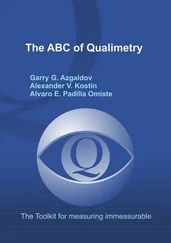Mma Ramotswe watched him closely. His small frame, she thought, was like that of one of those creatures you see scurrying through the bush: wiry and difficult to catch. He would be a wonderful dancer, she decided. And then for a moment she pictured Big Man Tafa, dancing with his wife, lost in all that flesh, his dainty feet barely touching the ground as he was lifted up in her arms.
She tried to make the question sound unimportant-an afterthought. “Who do you think is not trying his best?”
He answered immediately. “Rops,” he said. “If anybody wants us to lose, it must be Rops.”
She affected disbelief. “Surely not, Rra. Surely not Rops. Why would he want that?”
“Because he hates Mr. Molofololo,” said Big Man Tafa, “and I believe that Mr. Molofololo put Rops's brother-in-law out of business.”
“How did he do that?” Mma Ramotswe enquired.
Big Man did not know, but he assured Mma Ramotswe that it had happened and that Rops still felt angry about it.
“I see,” said Mma Ramotswe. “But if Rops dislikes Mr. Molofololo so much, why can he not just resign? He is such a well-known man that there will be many teams who will want him to play for them. He could go to Extension Gunners. He could go anywhere.”
Big Man Tafa shook his head. “Rops is too old now. He can no longer play very well. Rops is finished.”
“But surely he wouldn't want to end his career like this,” Mma Ramotswe persisted. “Who would want to retire after a long spell of losing every game?”
“Don't ask me,” said Big Man Tafa. “You should know that sort of thing. You're the detective.”
Mma Ramotswe sat quite still. “How do you know that, Rra? How do you know that I'm a detective?”
Big Man looked at her in surprise. “Because everybody knows that, Mma Ramotswe. You are a famous lady in these parts. Mma Ramotswe of the No. 1 Ladies' Detective Agency. Everybody knows you now.”
“Your cover is blown,” said Mma Tafa, smiling at Mma Ramotswe. “Isn't that what you detectives say?”
Big Man Tafa answered the question for her. “It is,” he said.
AS SHE WALKED back to the car, Mma Ramotswe was deep in thought. She was not quite sure what to make of her conversation with the Tafas; some things had become clearer while other things had become more obscure. Some things, indeed, were now quite unintelligible.
The small boy was sitting on duty at the van, and she fished a couple of coins out of her bag to pay him.
“You have looked after the van very well,” she said, pressing the coins into his outstretched palm.
“Thank you, Mma.”
She looked down at him, at his funny, rather serious face; he was wiser, perhaps, than most boys of his age. Boys know everything, she remembered somebody saying. Everything.
“Tell me,” she said to the boy. “Big Man Tafa: Is he a good man, do you think, or is he a bad man?”
The boy's eyes moved slightly. A fly had landed on his head and was walking slowly across the smooth expanse of his brow. He did nothing to brush it off.
“He is bad man, I think,” he said. “A very bad man. And one day God is going to punish him.”
Mma Ramotswe was taken aback. The judgement had been so swift, so clear; but it always is, she reflected, when you're that size.
“Who says he is a bad man?” she asked. “Just you?”
The boy shook his head, making the fly take off from its suddenly uncertain landing strip.
“My father,” he said. “Big Man Tafa owes my father ten thousand pula. That is this much, Mma.” He stretched out his hand to illustrate a pile of money. “He says that only bad men don't pay what they have promised to pay. That is why I think that God will get him.”
Mma Ramotswe smiled. “You are a very interesting boy” she said.
CHAPTER TWELVE. CROCODILE SHOES
WHEN MMA RAMOTSWE arrived back at an empty office, she found on her desk a handwritten note from Mma Makutsi:
Mma Ramotswe, I am feeling a bit better now and I have decided to go shopping. I need to think about the matter I discussed with you, but I must go to the shops now. Phuti is coming for dinner and I must buy food for him. I shall talk to him, Mma. You said that it is always best to talk and that is what I shall do.
Grace Makutsi, DSP
Mma Ramotswe smiled at this note. If the way we write a letter gives us away, as people said it did, then the DSP said it all: the Diploma in Secretarial Practice that Mma Makutsi had was her proudest possession-and understandably so. But did she have to put it after her name, and do so even when she wrote a note to her employer? Mma Ramotswe herself had no letters to put after her name, unless, of course, she wrote W, for Woman. Mma Precious Ramotswe, W. That seemed a bit unnecessary because the Mma made it clear that she was a woman, as did her first name, Precious. Perhaps she could put TBW (Traditionally Built Woman) or PI (Private Investigator). The last of these sounded much better, she thought, but really was not necessary, as everybody appeared to know that she was a private detective, or so the Tafas had claimed.
She hoped that Mma Makutsi would handle her conversation with Phuti tactfully, and not say anything that she would later regret. When she had suggested to her assistant that she should talk about her concerns, Mma Ramotswe had not meant that she should talk to Phuti; she had meant that Mma Makutsi should talk to her. Discussing that sort of thing with a woman friend was one thing; discussing it with a man, and with the man under suspicion as well, was quite another, and much more hazardous. Men did not like to be suspected of unfaithfulness; indeed, she had heard of cases where men had responded to such accusations by going out and finding another girlfriend, even when there was no truth to the original accusation. It seemed that the mere mention of such a possibility could be enough to trigger the desire in a man's mind to do what he would otherwise not have done. One had to be extremely careful.
Mma Ramotswe thought it very unlikely that Phuti was entertaining the possibility of abandoning Mma Makutsi in favour of Violet Sephotho. Phuti had always struck her as being an unadventurous, loyal man; not the sort of man to take up with a woman like Violet, with her loud, loose ways and her utter ruthlessness. And yet, and yet… The problem was that men were weak, and sometimes the steadiest of men proved to be the weakest of all when faced with a determined onslaught. Violet probably knew that very well. She knew how to turn a man's head, as she would have done so on many occasions before, presumably leaving a trail of broken engagements and marriages behind her. She was, Mma Ramotswe believed, a husband-stealer, as she had heard this accusation levelled against her on more than one occasion. And would Phuti, for all his fine qualities, be able to resist the devastating power of one so skilled in the sinister arts of husband-stealing?
She sat down at her desk, pondering these matters, and was doing this, looking up at the ceiling, when Fanwell came in.
“I know that it is not yet tea time, Mma,” he said, looking at his watch. “But I am very thirsty. I would like to make some tea.”
“I am thirsty too,” said Mma Ramotswe. “So perhaps you will make some for me, too.”
Fanwell went off to fill the kettle and returned a few moments later. While waiting for the water to boil, he sat on top of Mma Makutsi's desk, kicking his legs against the side. He would never have dared to do that, thought Mma Ramotswe, had Mma Makutsi been present, but he could be forgiven the presumption. There were some things that she herself did when Mma Makutsi was absent that she would never have dared to do in her presence-such as using her assistant's cup if her own cup needed washing and she was too busy-or it was too hot-to do it.
Читать дальше











